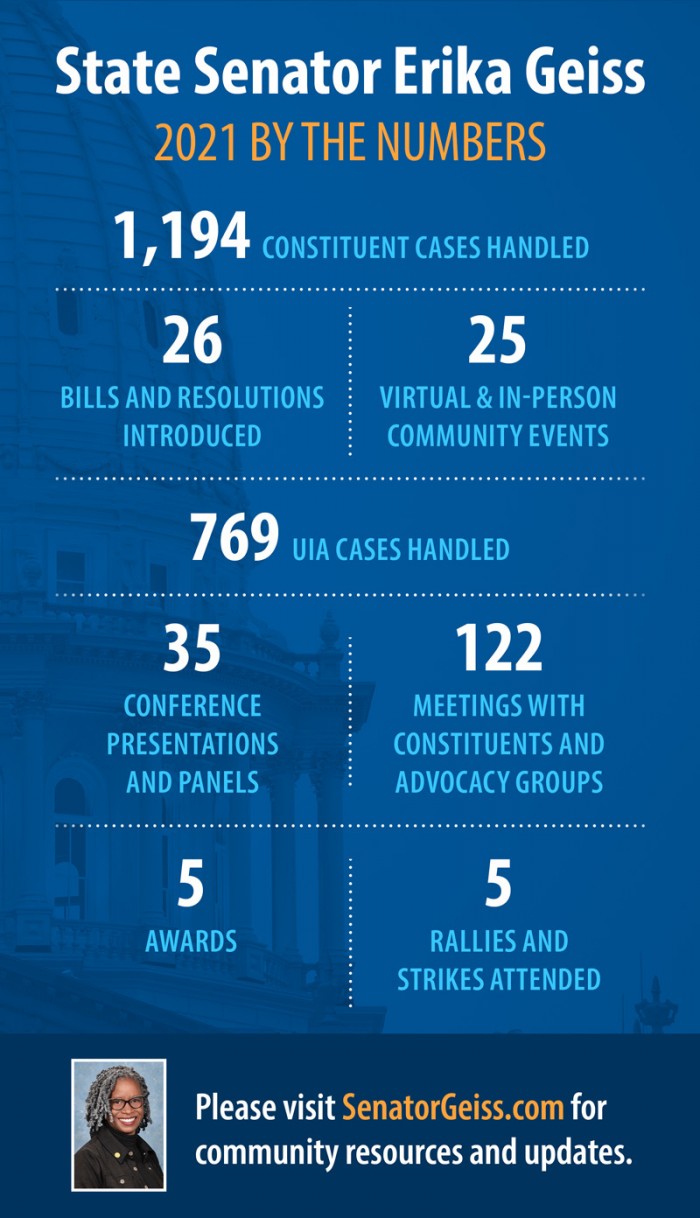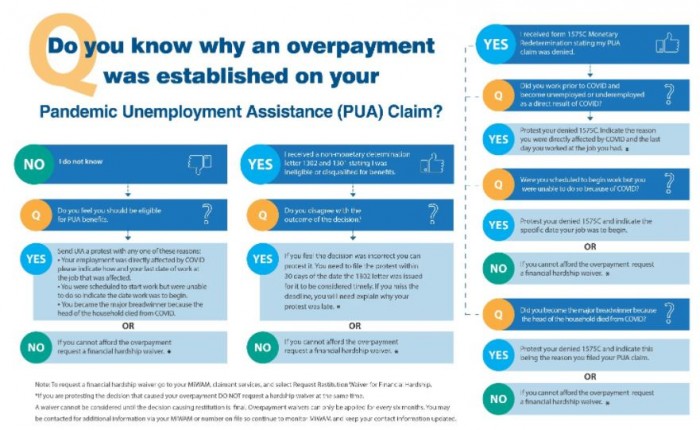|
2021 Legislative Year in Review 2021 was a year of turbulence and recovery for many residents and families across Michigan. Throughout the year, many of us came together to push back against the COVID-19 virus by masking up and getting our vaccines and booster shots. Record flooding around the state tried to break us but steeled our resolve. Flat Rock muscled through a toxic gas event. Despite the steep challenges we faced and still have ahead of us, we continue to work together to support and improve our state and our country. Here is a highlight of some of the ways we worked for you in 2021.
|
|
The passage of the Fiscal Year 2022 budget saw a much-needed increase in the investment in Michigan residents and families. The budget provides additional funding to help people across our state who continue to struggle with daily necessities such as affordable childcare and health care. While the budget is only a first step in addressing these significant issues, I am proud of this great achievement for all Michiganders. Among the appropriations in the budget, some key investments include:
Totaling just under $70 billion through a combination of state and federal funds, this budget provides endless possibilities to renew and rebuild Michigan in the wake of the COVID-19 pandemic. It also provides revenue sharing increases to cities, villages and townships. In 2021, we also appropriated funding for community projects in the that came from the American Rescue Plan. I was proud to push for and support these projects in our communities:
Your Voice in Lansing This year, I introduced 21 bills and 5 resolutions in the State Senate that will have a meaningful impact in our state and have a positive impact on our residents. Highlighted below are a few of the bills I introduced; I want to thank my fellow colleagues in both the House and Senate for their support on these bills.
I also joined my colleagues in the Senate by submitting a bill as a part of several packages to support residents and families in Michigan.
Expansion of Maternal and Postpartum Health Care for Prisoners 2021 saw major steps toward expanding and providing critical medical resources and support for pregnant and post-partum prisoners and their newborns. On October 19th, Governor Whitmer and the Michigan Department of Corrections (MDOC) announced a new policy directive that would guarantee these resources and took effect on November 22nd. This announcement came after years of working with a coalition of stakeholders to take this important step forward and includes a significant portion of the legislation that we introduced in previous years. This new policy directive is just one important start in ensuring that healthy moms/healthy babies includes even those mothers who are serving time and their infants. The new directive has several focuses on improving health outcomes for pregnant and postpartum prisoners and their newborns, including:
Recognition and Awards I was honored to be recognized for my work throughout the year, and want to share with you some of the awards that I was humbled to receive:
Unemployment Insurance Agency Update As our office worked on more than 900 cases assisting constituents with their unemployment issues, we wanted to take some time to reiterate what to do if you receive a letter saying you were overpaid and owe money back.
|
|
You can contact 1-800-638-3994 to speak with the Unemployed Worker Advocacy Assistance program to see if you are eligible for consultation and representation. As always, you can fill out this unemployment assistance form and our office will reach out to assist you with your issue as soon as possible. You can also visit the Michigan LEO FAQ page for answers to questions you may have regarding eligibility for unemployment or for issues you may have with your current claim. >> Click here to schedule an in-person appointment at a local UIA office.
Looking Toward 2022 2021 was a year of turbulence and recovery for many and there is much hope to be had in the year 2022 as we continue to fight for justice and equity for all residents and communities in Michigan. I will continue to fight for our residents and communities across Michigan as we work towards economic justice. More information on these bills will be shared in the New Year. It has been an honor working for Senate District 6 during the 101st Legislature, but there is still much work to be done for you and for our communities. If you have any questions or need assistance, please do not hesitate to reach out to my office. We are available to assist you and can be reached by email at SenEGeiss@senate.michigan.gov or by phone at (517) 373-7800. Best wishes for a happy and healthy New Year,
|
|
As an elected representative, I believe in being readily available and transparent because my office is your office. Email is a great way to share updates, and hear from you on the issues you care about. If you want to alter your email preferences, click here to unsubscribe. |




